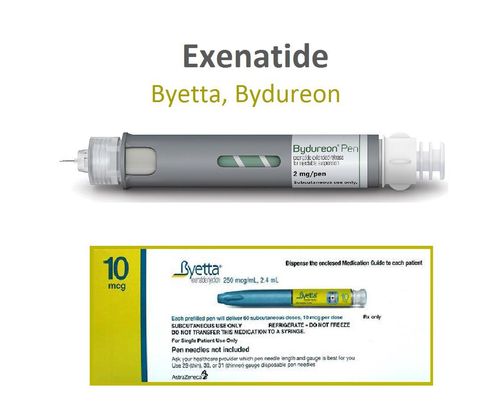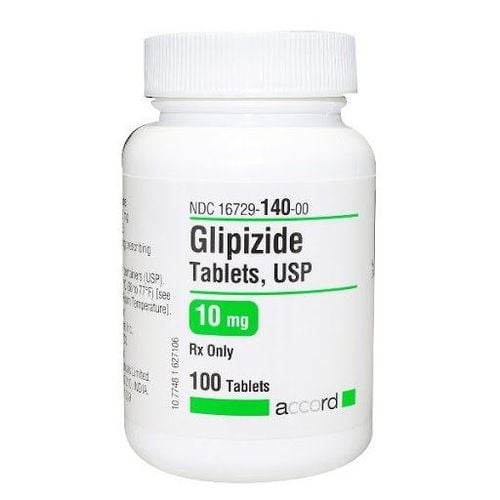This is an automatically translated article.
The article was professionally consulted with Specialist Doctor I Nguyen Huu Nam - Pediatrician - Neonatologist - Department of Pediatrics - Neonatology - Vinmec Nha Trang International General Hospital.Diabetes is a disease that is becoming more and more common. Diabetes in children leads to many health consequences. Screening for diabetes in children plays an important role in screening, timely detection and treatment, avoiding dangerous complications.
1. What is diabetes?
Diabetes is a chronic disease, caused by a disorder in the process of using and storing sugar, leading to an increase in blood sugar. Diabetes is a non-contagious disease. Diabetes has 2 types:Type 1: Occurs mainly in young patients. Type 1 diabetes in children mostly has no obvious symptoms in the early stages, so it is often detected late. Type 2: Found mainly in the elderly, overweight and obese.
2. Causes of diabetes in children
The cause of diabetes in children is a deficiency of insulin (the pancreas produces) for type 1 and a defect in the action of insulin type 2. When there is a deficiency of insulin, glucose cannot enter the cells. As a result, blood glucose levels rise.In addition, diabetes in children is also caused by the child's immune mechanism when the child is exposed to factors such as drugs and chemicals. Obesity is also one of the leading causes of diabetes.

Nguyên nhân gây nên bệnh tiểu đường ở trẻ em là do thiếu hụt insulin (tụy sản xuất).
3. Risk of diabetes in children?
Diabetes is common in people of all ages, both men and women. For children, diabetes is common in children starting school (5-7 years old) and puberty (11-13 years old). Most children often have type 1 diabetes, some overweight and obese children can get type 2.Diabetes is not a contagious disease but is inherited. Children who have a close relative with diabetes are more likely to develop the disease than those who do not have the disease. This has been proven by research.
Whether eating a lot of sugar causes diabetes in children has not been scientifically proven. However, when there is an excess of sugar in the body, it will force the body to convert it to fat. Excess fat leads to obesity. This is also one of the risk factors for diabetes.
4. Screening for diabetes in children
Children with diabetes often have the following symptoms:There are "four many" symptoms including: Eating a lot, being thin, thirsty a lot, drinking a lot. However, in reality, few children have all four symptoms above. Some children have only two or three symptoms. In addition, children with diabetes also have poor appetite, weight loss, fatigue, exhaustion, vomiting, abdominal pain, dehydration, and confusion. Children may also show signs of decreased resistance such as boils, genital itching, gingivitis. Diabetes in children also has manifestations such as numbness in the legs, vision loss, dizziness. Screening for diabetes in children plays a very important role, helping to detect the disease early, treat it promptly and prevent the disease from progressing, as well as limiting complications caused by the disease. Measures to screen for diabetes in children include:
Take your child for regular health checkups. Children with type 1 diabetes in the early stages often have no obvious symptoms. Usually weight loss, poor appetite, much thirst... If you see a child with the above signs, you need to take the child to the doctor immediately to detect the disease.
5. What complications can diabetes in children cause?
The most common complication of diabetes is ketoacidosis. The body cannot use sugar, so it converts fat to provide energy for the body's activities. It is fat metabolism that creates many ketone bodies in the blood through fatty acid metabolism. When ketoacidosis, children have manifestations of lethargy, coma, rapid deep breathing, dehydration. Long-term complications can include blindness, kidney failure, proteinuria. Diabetes in children is also a cause of cardiovascular diseases, such as stroke or blindness, kidney failure, impotence, gangrene...6. Treatment of diabetes in children
The goal of diabetes treatment is to bring blood sugar to near normal levels and at the same time limit complications. Therefore, it is necessary to adhere to the following principles:Regularly measure blood sugar for patients according to the doctor's orders. You can test your blood sugar quickly with a dextrostix or glucostix stick. Blood glucose monitoring must be carried out daily so that complications can be detected early. Do test Hemoglobin A1c (HbA1c) periodically every 3 months to monitor treatment, see if it improves the patient's condition or not. Take medication exactly as ordered by your doctor. Follow a reasonable diet to prevent and detect complications early. The cooperation between doctors, patients and family is very important.

Để điều trị tiểu đường ở trẻ em hiệu quả, cần tuyệt đối tuân thủ theo hướng dẫn của bác sĩ
7. Precautions
Prevention is very important work in medical activities. To prevent diabetes, it is necessary to follow the following principles:Adjust the child's nutrition: Feed the child appropriately, do not give them a lot of sugar and sweets. Give your child lots of green vegetables and fruits to increase fiber and essential vitamins. In particular, it is necessary to avoid carbonated drinks and ready-to-eat foods. Increase cooked, boiled dishes and limit fried foods in children's diets. Creating conditions and habits of movement for children. Run or play sports with your child every day. Take your children to regular health check-ups to detect diseases early. Hopefully, the above sharing has helped readers understand more about diabetes in children and measures to screen for diabetes in children. From that knowledge to be able to detect the disease early and treat promptly.
In case you want to know what your child's blood sugar is, what level of diabetes is, you can sign up for a diabetes screening package, dyslipidemia at National General Hospital Vinmec economy. Not only health screening, the diabetes and dyslipidemia screening package also helps to detect pre-diabetes early, accurately classify diabetes type, develop a nutritional regimen, and monitor the treatment of diabetes. risks and complications caused by diabetes.
Using the screening package for diabetes and dyslipidemia at Vinmec, customers will receive:
Endocrine CK examination (with appointment) Total urinalysis (by automatic machine) Quantitative Glucose Quantitative HbA1c Quantitative Uric Acid Quantification of Cholesterol Determination of HDL-C (High density lipoprotein Cholesterol) Determination of LDL-C (Low density lipoprotein Cholesterol) Determination of Triglycerides Determination of Urea Determination of Creatinine Measurement of AST Activity (GOT) Measurement of ALT Activity (GPT) Measurement of GGT activity (Gama glutamyl Transferase) Quantification of Micro Albumin Urine Echocardiogram, transthoracic pericardial echocardiogram Regular ECG Doppler ultrasound of carotid arteries, transcranial Doppler (carotid artery) Doppler ultrasound of arteries and veins of extremities lower (bilateral lower extremity arteries).
Please dial HOTLINE for more information or register for an appointment HERE. Download MyVinmec app to make appointments faster and to manage your bookings easily.













